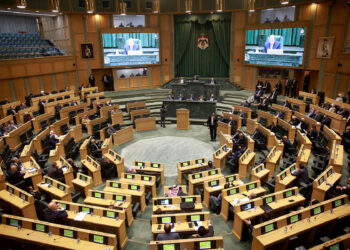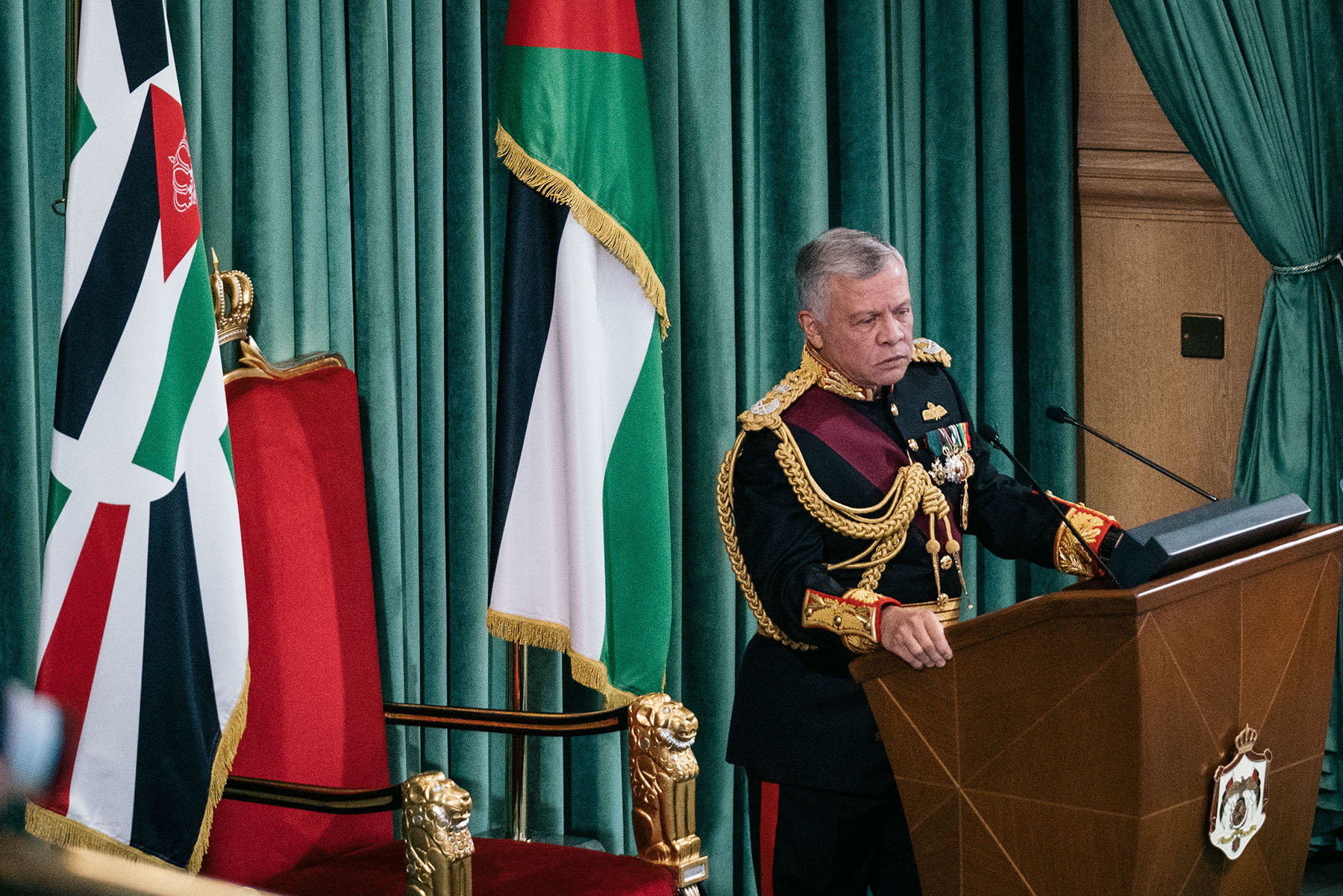Ahmed Masoud is the author of the novel Vanished: The Mysterious Disappearance of Mustafa Ouda, which was shortlisted for the Palestine Book Awards. A writer and director, he grew up in the Gaza Strip and moved to the United Kingdom in 2002.
عربي
It didn't start when Hamas fired rockets, nor did it end when the cease-fire took place. It started when I queued at U.N. food distribution centers, waiting to get my rations of flour, vegetable oil and dry baby milk. It started when Gaza's international airport was bombed and completely destroyed by Israel in 2001. And it started when I, like 75 percent of Gaza's population, was registered as a refugee.
My grandfather's stories of how he fled our village in Deir Suneid in 1948, just north of Gaza in what is now Israel, are still present in my mind. I remember those stories every time I visit from London, when I am not allowed to cross from Israel into the West Bank, even though I have a British passport. This is because I also have a Palestinian ID card that says I am from Gaza and that's the only Palestinian area I can go to. But I am not actually from Gaza; I just became a refugee there, after my family was kicked out of their home like hundreds of thousands of Palestinians.
I was in Gaza in April visiting my family, and there was a glimpse of change on the horizon—but not the one the world recently witnessed in the latest Israeli assault on Gaza. Instead, last month in the besieged Strip, there were preparations for Palestinian elections. Finally running a democratic process brought the possibility of uniting the different Palestinian factions and the hope of a peaceful transition into a different stage of our ambition for independence.
That possibility for change evaporated when Israel decided to deny Palestinians in East Jerusalem the right to participate in those elections, prompting Mahmoud Abbas, the Palestinian president, to cancel the vote. And that hope went out the window when Israeli forces installed metal barriers by Damascus Gate in Jerusalem's Old City, restricting the movement of Palestinians during Ramadan. The mood changed when Israel started threatening and removing Palestinians from the nearby neighborhood of Sheikh Jarrah, in order to pave the way for Israeli settlers to take over. The intended ethnic cleansing of Sheikh Jarrah and other parts of East Jerusalem is another continuation of the Nakba of 1948, when Israel was established and my family, like so many Palestinian families, was driven out of our home.
Little of this is ever mentioned in Western media, which only seems interested in talking about Hamas and its rockets, echoing the Israeli military. Yet even though no rockets were fired from the West Bank, Israel shot dead 30 Palestinian protesters there and in East Jerusalem in the past two weeks. There is even less attention on the mass arrests of Palestinians in Israel for protesting in solidarity with Sheikh Jarrah and Gaza, or on the apartheid regime in the occupied West Bank, with its aggressive checkpoints, Israeli-only roads and racist "separation wall" that cuts through Palestinian land.
The so-called cease-fire that came into effect at 2:00 a.m. in Gaza last Friday has not and will not change anything for Palestinians there. It will not lift the 15-year-old Israeli blockade. Crossings between Gaza and Israel remain shut, restricting goods and supplies for those who desperately need them. Electricity is only available for three hours a day now, and water is hardly available. There is little to no internet.
The only thing that has changed since the latest Israeli assault on Gaza is the skyline. Some of its biggest tower blocks have disappeared, leveled by Israeli airstrikes. Some of those towers housed NGOs that worked with disadvantaged sectors of Gazan society, including women and young Palestinians. They were home to youth-training centers and internet companies, and also restaurants and cafes with a beautiful view of the Mediterranean. Israel was not just bombing buildings; it was damaging life in Gaza and any hope or prospect of it returning to normal. It wanted to send Gaza's infrastructure back 30 years. Al-Rimal, the most affluent neighborhood in Gaza City, was bombed so heavily, its entire architecture changed. Its streets are all rubble.
The Rafah border into Egypt will not get any better for Palestinians in Gaza, either. And we still won't have our airport rebuilt, or our seaport open. Most Palestinians still won't be able to travel out of Gaza for medical care or to study. For the few that do get permission from Israel to travel to Jordan or to Egypt, they will keep facing long, arduous travel through many checkpoints. It takes a minimum of 24 hours to travel from Gaza to Cairo, passing through Egyptian army checkpoints; very often, it takes up to two days.
Meanwhile, the Israelis will continue with their plans to ethnically cleanse Sheikh Jarrah. They've already arrested over 1,000 Palestinians for protesting in cities like Haifa and Umm al-Fahm, where so many Palestinian citizens of Israel live. Israeli soldiers will continue their incursions in the West Bank, arresting whomever they want while coordinating with their puppet government in Ramallah, the Palestinian Authority.
This will all continue until more of the world starts to believe that Palestinian lives also matter and to speak out against this injustice. We're slowly seeing a shift in public opinion. There were 200,000 demonstrators marching on the streets in London last week, probably the largest pro-Palestine march ever in the U.K. We've also seen public figures and celebrities declaring their support for Palestine because they believe in human rights and justice. We need to build on this momentum and keep talking about these issues—away from politics, away from who is right and who is wrong, and beyond the headlines because we, Palestinians, deserve to live freely and with dignity like everyone else.
Photo credit: Palestinians return to their destroyed houses in Gaza City after the cease-fire deal between Israel and Hamas took effect, ending the 11-day conflict in Gaza, May 21, 2021. (Photo by Ali Jadallah/Anadolu Agency via Getty Images)































![Security forces loyal to the interim Syrian government stand guard at a checkpoint previously held by supporters of deposed president Bashar al-Assad, in the town of Hmeimim, in the coastal province of Latakia, on March 11, 2025. Syria's new authorities announced on March 10, the end of an operation against loyalists of deposed president Bashar al-Assad, after a war monitor reported more than 1,000 civilians killed in the worst violence since his overthrow. The Syrian Observatory for Human Rights said the overwhelming majority of the 1,068 civilians killed since March 6, were members of the Alawite minority who were executed by the security forces or allied groups. (Photo by OMAR HAJ KADOUR / AFP) / “The erroneous mention[s] appearing in the metadata of this photo by OMAR HAJ KADOUR has been modified in AFP systems in the following manner: [Hmeimim] instead of [Ayn Shiqaq]. Please immediately remove the erroneous mention[s] from all your online services and delete it (them) from your servers. If you have been authorized by AFP to distribute it (them) to third parties, please ensure that the same actions are carried out by them. Failure to promptly comply with these instructions will entail liability on your part for any continued or post notification usage. Therefore we thank you very much for all your attention and prompt action. We are sorry for the inconvenience this notification may cause and remain at your disposal for any further information you may require.”](https://dawnmena.org/wp-content/uploads/2025/04/syria-22039885951-360x180.jpg)






